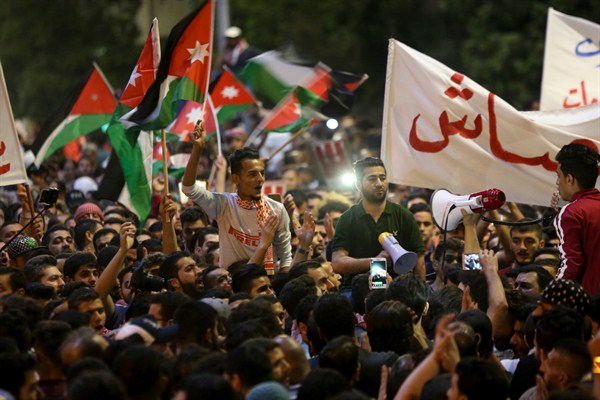When people take to the streets to protest high prices and tax increases, their message doesn’t usually resonate beyond their country’s borders. But when the protests erupt in a country like Jordan, in the heart of the Middle East, they are an uncomfortable reminder to the region, and the world, of the kingdom’s vulnerability and its importance in preserving regional stability.
The protests started last week in Amman, and they quickly took on a life of their own, expanding well beyond the capital and drawing support from across society—a sign that their objective of drawing attention to economic hardships resonated deeply among Jordanians. Demonstrators focused primarily on a just-introduced draft law that raises taxes, part of an effort to follow the direction of the International Monetary Fund, which has loaned money to Jordan to keep its listing economy afloat. The demonstrations were called by a wide-ranging collection of professional organizations and joined by student groups. They brought out thousands of middle-class Jordanians in the night hours after the Ramadan fast, who demanded that the government scrap the austerity plans, despite a crushing debt load that is swallowing increasingly large chunks of the national budget.
The massive crowds, some of the largest in recent memory in Jordan, are a sudden reminder of the limits of King Abdullah’s power and the simmering challenges to the country’s stability. Over the years, the Hashemite kingdom has contended with demands for democratization, ideological extremism, and demographic challenges from both Jordan’s large Palestinian population and the recent influx of more than a million Syrian refugees. But the economy has been Jordan’s most persistent weakness.

